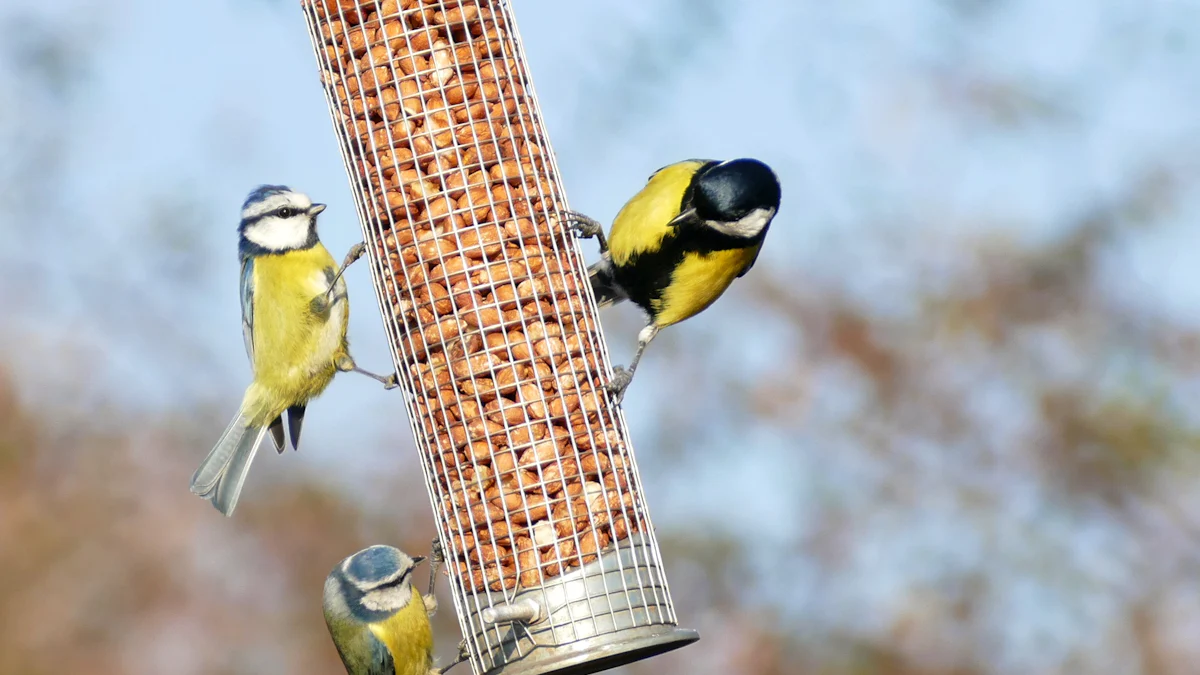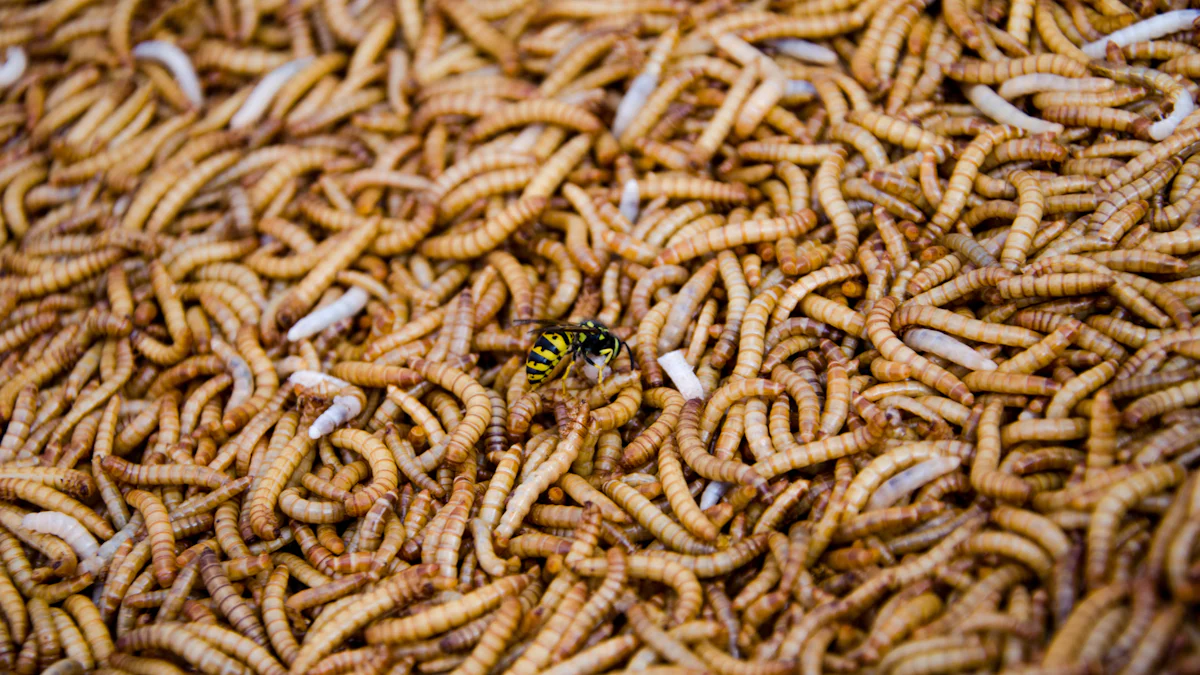
Birdfeeders have become a common sight in backyards. People enjoy watching birds up close. The global birdfeeder market is booming. Experts predict it will grow from $1.56 billion in 2023 to $3.02 billion by 2032. Birdfeeders can boost bird survival rates by up to 40%. But some wonder if birdfeeders might cause harm. Do birdfeeders disrupt natural behaviors? Could they spread diseases? These questions deserve attention. Let's explore the impact of birdfeeders on our feathered friends.
Potential Negative Impacts on Bird Health

Spread of Disease
Birdfeeders can become hotspots for disease transmission among birds. When many birds gather at a birdfeeder, they share more than just food. They exchange bacteria and viruses too. Dirty birdfeeders can turn into breeding grounds for harmful pathogens. Diseases like salmonellosis, trichomoniasis, aspergillosis, avian pox, and conjunctivitis often spread in these conditions. Regular cleaning of birdfeeders helps reduce the risk of disease.
Scientific Research Findings: A study published in Conserv. Physiol. highlights that birdfeeders can serve as reservoirs for several diseases found in birds. Routine cleaning is critical for ensuring the health and viability of visiting avian species.
Poor Nutrition
Birdfeeders sometimes offer food that lacks essential nutrients. Birds need a balanced diet to thrive. Feeder food often consists of seeds high in fat but low in other nutrients. This imbalance can lead to poor nutrition. Birds may develop health issues or experience stunted growth.
Feeding birds with a variety of seeds and natural foods can help. Offering fruits and insects along with seeds provides a more balanced diet. Birdfeeders should not replace natural feeding sources. Instead, they should supplement what birds find in the wild.
Environmental Concerns

Disruption of Natural Feeding Patterns
Birdfeeders can change how birds find food. Many birds start relying on birdfeeders instead of searching for food in their natural habitats. This dependency can cause problems when birdfeeders are empty or removed. Birds may struggle to find food on their own. Some birds might delay migration because they depend on the easy food source. This delay can disrupt natural migratory patterns, affecting birds' survival and reproduction.
Impact on Local Ecosystems
Birdfeeders can attract non-native species. These species might compete with local birds for resources. Non-native species can sometimes outcompete native birds, leading to a decline in local populations. Birdfeeders can also alter the balance of ecosystems. Artificially supplementing nutrients through birdfeeders may lead to unexpected ecological impacts. This imbalance can affect plants and other animals in the area.
Case Studies:
Effects of Bird Feeding on Ecosystems: Artificial nutrient supplements from birdfeeders can lead to unanticipated ecological impacts. This study highlights the importance of understanding the balance of costs and benefits of bird feeding practices.
Backyard Bird Feeding Controversy: Supplemental feeding helps individual birds but may disrupt migration patterns. This debate emphasizes the need for responsible bird feeding.
Birdfeeders offer many benefits, but they require careful management. Responsible practices can minimize negative impacts on bird health and local ecosystems. Regular cleaning and varied food offerings can help maintain a healthy environment for birds.
Human Impact and Responsibility
Maintenance and Hygiene
Birdfeeders need regular cleaning to keep birds healthy. Dirty birdfeeders can become breeding grounds for bacteria and viruses. Regular cleaning helps prevent disease spread among birds. You should clean birdfeeders at least once a week. Use a solution of one part bleach to nine parts water. Rinse thoroughly and let the birdfeeder dry completely before refilling.
Neglecting birdfeeder maintenance can have serious consequences. Birds might get sick from contaminated food. Sick birds can spread illness to others. A neglected birdfeeder can also attract pests like rodents. Pests can cause additional problems in your yard.
Responsible Feeding Practices
Choosing the right type of food is crucial for bird health. Different birds prefer different foods. Sunflower seeds attract a variety of birds. Nyjer seeds are great for finches. Suet attracts woodpeckers and nuthatches. Avoid offering bread or processed foods. These lack essential nutrients for birds.
Seasonal considerations play a role in responsible feeding. In winter, high-fat foods help birds maintain energy. In spring and summer, birds need protein-rich foods for breeding and raising young. Adjust the food you offer based on the season. This ensures that birds receive the nutrients they need year-round.
Expert Testimony:
Bird Feeding Expert: "Feeding birds in your garden safely requires understanding their dietary needs and maintaining clean feeding stations."
Birdfeeders offer a wonderful way to connect with nature. Responsible practices ensure that birdfeeders benefit both birds and humans. Keep birdfeeders clean and provide a variety of nutritious foods. Your efforts will create a safe haven for feathered friends.
Birdfeeders can impact bird health and local ecosystems. You should consider both the benefits and drawbacks of using a birdfeeder. Responsible bird feeding practices are crucial. Regular cleaning of birdfeeders prevents disease spread. Offering diverse food options ensures birds receive proper nutrition. Birdfeeders can support bird populations when used correctly. Weigh the pros and cons of having a birdfeeder in your yard. A well-maintained birdfeeder can create a safe haven for birds. Your efforts can make a positive difference in the lives of these feathered friends.













